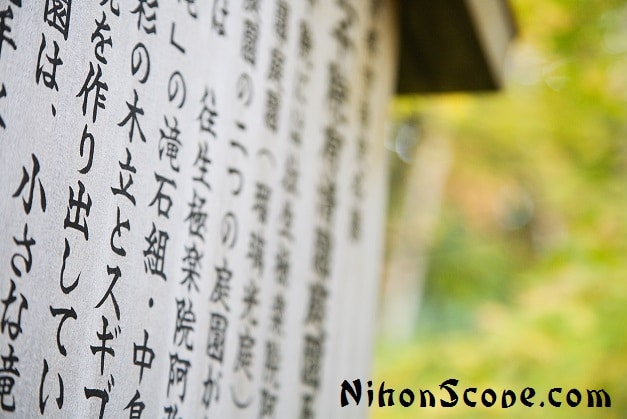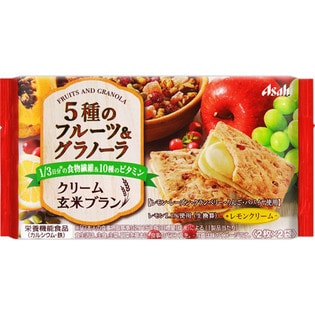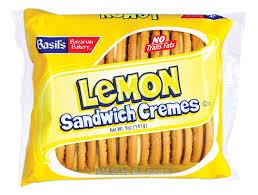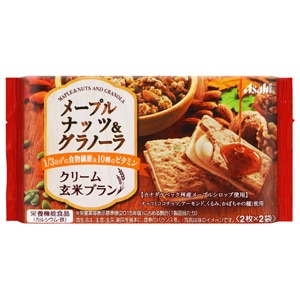Keeping Momentum While Learning Japanese
George from Japanese From Zero Breaks Down
WHY You Need to Keep the Momentum While Learning Japanese!
Please note this is a rough transcription of the video above…
Hello, everybody, and welcome to another yes…. This is just dependently number 100. That’s it. That’s the exciting. One 100 finally made it all this way. And I’m in a sort of a mixed mood today. Because today has been one of the most fun days I’ve had in at least a week. And I only say that because the week before was another happy day. Really happy day, um, today’s topic is keeping momentum.
And I kind of thought it was gonna be jovial fun, but now I’m in this deep mode of thinking. And I was just sort of reflecting on today. And you know, today, there was a weird point in the day. I had Putin come over, and Poonam is Poonam is my Korean helper girl. I have no other name for it. She’s my Korean friend. And very, very new friend, we’ve only met twice, she comes to the office will typically have lunch, and then we’ll study some Korean and then she record some sounds for me, in Korean, because I’m studying and I’m also building Korean from zero calm, and a Neato sounds. But today, it started out.
And I think you’ll understand this as learners of Japanese, that you have this desire to really, really jump through things fast. I mean, it burns. It burns so passionately in me, you know, passionately in me, like I can feel the fire, you know, I want to speak Korean insert your language, right? You want to speak Japanese. And it’s extremely frustrating, because you can’t. And you think if you thought hard enough, you could do it. But you can’t sometimes. And
so today, I started out, I gave him some homework, because me and him have a weird relationship. Because she’s not really teaching me. I’m telling her to teach me and I’m telling her what to teach me. I’m creating the class as we go. She’s not actively thinking, although she did say at the end of our session today, I know what you want now. And I’m going to come back with something like she’s starting to understand me as a person. But I’ve been saying, What is this? What is this? What is this? And I’ll go like, okay, now I get it, you know, it’s that kind of a thing. And, and I’ve been directing it. So it’s sort of a weird relationship in that aspect.
And I think because of that I’ve, because I’m directing my own.
Less lessons, I think I was too aggressive and thinking, I could do really, really fast lists. I thought that.
Sometimes You Have to Step Back in Your Japanese Studies
So today, I came in, and I had given her this homework to do. It’s weird, because she’s the teacher, I’m giving her homework. And her homework is like, I write down some words that I like to know in some phrases. And I give her certain phrases and words, knowing that I know the pattern I’m looking for in the speech. Matter of fact, you know, there’s something weird that happens when you get to that second language of learning. And this is my second,
you start really looking at similarities. And you go, Whoa. And then you start, you start desiring the thing, like if you guys already know another language, like let’s say, you know, French in English, you’re desiring certain things in French in Japanese, you want that certain one piece of grammar that you use all the time, and you’re looking for it? Well, I’m doing the same thing in Korean. And I started out today with verbs with that homework, and I got very disappointed because the patterns weren’t there that I was looking for. They just didn’t exist. I, I wasn’t seeing them. It’s like, maybe they were there. But I was blind to it. I think this happens. And I was like, confused. And she tried to help and I didn’t help initially. And you know, this isn’t more to talk about, this is not what I wanted to talk about today. So this might be a very longer daily than normal, but you know what, it’s no more 100. And I think I deserve a little bit of time to talk. Alright, so and maybe you’ll get something out of it.
So I said, You know what, I need to step back. Sometimes when you’re learning a language, you have to step back and when I mean step back, I don’t mean look at the big picture. I mean, literally go back to a more basic lesson, because there’s something fundamental that you need and I realized it. Everyone needs success in learning language. You need to feel like you have done something and if you jump too far too fast…
You’re just setting yourself up to fall. It’s okay to fall. But I’ll tell you what, most people don’t get up from that fall. They don’t. You know, I look at data, right? I run Yes, Japan now for maybe 14 years or so. And there’s data that says, most people, and in course, one sit.
Most People Start but Never Finish When Learning Japanese
Most people buy book one. That’s it. Why hasn’t it been this big priority in my life to put out book four and five, the data doesn’t really show that it will be the huge seller that people like to tell me that they think it will be. I mean, I think it’s gonna do great. It’s a great book.
But when you compare the amount of people that can buy a level one book, versus who will buy a level four book, The numbers are fractions different, because people give up. They’ve stumbled two or three times and they stop, or they feel like they’re not making progress, and they stop.
So I step back, step back today, and I went back to something I realized I hadn’t even gotten to, and I’ll tell you what, man, learning this learning Korean has opened up so many insights for me personally, not only personally, but as a teacher, it’s opened up so many insights. I mean, real simple things. Like for example, these are the flashcards that I used to give in our classes for guest, Japan. They’re too freaking small. I hate them. I never used these flashcards until today, 10 years or more after I created them. And we don’t sell these anymore, because I didn’t like them for other reasons.
But they’re too small.
Those are little things. So I stepped back. And I went back to the it’s a dog. I still hadn’t figured that out in Korean. And there will be a little bit of Korean maybe in this episode, just because I had an amazing day with Korean. I mean, I literally,
I think it’s appropriate for the day that I and by the way, I wasn’t planning on shooting the 100th episode that it was gonna wait a couple days, but I think it’s appropriate that I had a great day on the 100th day, you know, cuz I think I feel like I deserve a little bit. Right. That’s sort of my present, you know, so I went back and I was looking at just it’s a this or that. And then I realized, okay, I don’t even know the basic things right. Like, how do you say, knows what he knows in Korean? Oh, it’s cool. Cool.
Doesn’t Matter the Language… A Little Often Make Much
chiri mo tsumoreba yama to naru – Even Dust Piled Up Becomes Mountains
noon, it. Morning, morning. Qui he, or cheer? Or sometimes they say eople which means fangs. And by the way, what I just did, oh, song, song. Song Gara fingers, what I just did, I’ve done at least 10 times. today. I keep repeating myself. Because I know that that’s how you learn. You keep repeating yourself. The chances of me getting that into my long term, my long term memory without repeating it. Impossible. I can’t say it once. And then if I know half the things I learned today, I probably will have to relearn again. And you guys learn in Japanese? Listen.
This is my this is my second language. I’ll tell you what, I remember doing the same thing for Japanese. And I remember forgetting things. And you can’t, you know, let me get through some of the words because some of these words are exactly what I wanted to talk about. But first of all, it is that 100 of time and then we say that in Japanese cacti may notice that the Haku gets formed into the kind of Melton it’s not heco. Guy, it’s his Guy shakaama and that may is how you take any counter and make it into a ranked item 100th time came in on time.
What does that mean? 100 times. Think about it.
I think the first daily was in December or January I don’t remember I think it was December mattifying you know it was January. Let’s say it was 10 months ago. It’s October now. And
let’s just say it takes me two hours to do a daily with prep work and other things. And plus I haven’t just been doing the dailies. I’ve also done 60 ask a teachers and 30 Eggo eggs and 14 or 13 Korean from zeros, right? It’s 200 hours minimum over 10 months. Divide 10 months. How many how many hours is that? in a in a month. You know, I didn’t do the I didn’t do the work but I’m gonna say it’s 2020 hours to do the work. Didn’t do the work. It’s 20 hours in a month.
Does that that message right? Just 20 hours now divide that into a week. Let’s say there’s an average of four weeks even there’s actually sometimes four and a half, right? In a month. So four hours a week. And in 10 months, it equals 100 hours. Why am I saying that? Because so much?
No, listen, I know there are great people out there that just man they, they achieve everything all the time. And they’re hearing this and going do I gotta hear this again? Because it feels like I do this every fifth at least daily. But this is what I hear a lot. I’m mighty pinkish. tonight. I’m Murray bankers tonight. I haven’t studied a lot of money Banco tonight.
A Year From Now You Will Wish You Had Started Today
But you could have studied easily four hours a week. That’s not even 30 minutes every day, is it? Yes, it is. 30 minutes every day is would make it three and a half hours for the week. But you put let’s say you went an hour, you can do seven hours, seven hours a week. And in 10 months, you’d have 280 hours, easy. 280 hours? Well, you know what that would mean, you’d be 10th of the way there and just 10 months.
So if you would have started realistically, putting your effort towards Japanese 10 months ago, you’d only have 90% more to go. That seems like a long way, right? 90% more, I don’t even know what that number means. I’ll show you where I got that number later. But look at this thing.
I today, I have the daily sign up because I really want you to know, a year from now you will wish would started today. This is a famous saying that I happen to see the other day I loved it. It’s by somebody named Karen lamb. I don’t know who she is. But whatever she does, she’s got some insight, right? So if you started 10 months ago, and just spent four hours, I promise you, I promise you, you would be speaking some Japanese. You could read and write hiragana katakana. And maybe at kanji dare I say you could have been through books 1234 and five if foreign five existed yet, but you could have been through the entire guest Japan. I know people have done it in six months.
But some of you didn’t. But that’s okay. That is 100% Oh, okay. The worst thing you can do is have feelings of guilt.
Because the feelings of guilt make you do it not even more. You feel like you have failed, you didn’t fail. You did not fail. If you didn’t study very much in the last 10 months. You just didn’t study that much in the last 10 months.
I didn’t study in the last month and a half. Even though I went on a video Korean from zero and said, I’m gonna kick some ass this month. And I didn’t kick any ass. I didn’t kick a pinky. I really I just didn’t, I was too tired. I was too busy. I didn’t make time. I didn’t set a goal. And I didn’t go through with that goal. I set a goal. But then I didn’t set the sub goals to make the goal happen. I just didn’t do it.
Do I read it? Nope.
Because what I did today and last week makes up for it, in my opinion. Because I’m moving forward. Now. The only time you’re going to feel guilty is when you’re not moving forward. So if you want to erase feelings of guilt and feeling like you’re not moving forward in Japanese start doing it. It is not easy. It is not. You wanted me to say it’s easier, but it’s not. Because it requires effort. And if you want to live like no one else, I’m sure you’ve heard this somewhere before you have to work hard like no one else. I’ll tell you, I’m in this room. this very room for the last nine days. I’ve been here until about five or 6am in the morning. Granted, I sleep later in the day. So that doesn’t really count. But I’ve spent on my goals. Not Korean, by the way, because Korean is a goal. But I’ve got other goals ahead of that. My goal right now is book four. But I took the time and you need to take the time. It’s not some movie montage until you’re done with it. All right.
It’s Okay To Fall Off the Wagon Just Get Back On When Learning Japanese
I don’t learn Japanese you tell all your friends you’re learning Japanese and you don’t actually put the time into studying all by yourself in your room alone.
For example, I have not studied this book that I bought that was highly recommended to me by a friend. I have not even opened it. There I opened it.
My dad, but I’m gonna I’m gonna commit to studying this every day. Here I’m making another commitment and guess what If I fail I fail. Man. I’m way off topic. I’m sorry, I’m way off topic.
I think I just want you to know, I think, I think the important thing I want you to know is it’s okay to fail, you will fail. build it into your plans, you will forget at least one out of every three words that you learn. And that will never change even when you’re fluent. I forget words all the time still in Japanese. And I stumble over them right.
I don’t think I realized today because I said all these words right? To my my friend put him and she said, I understand what you’re saying. I can’t do her accent it’s really cute. I understand what you’re saying. But you sound Japanese.
I guess that’s a good thing right? At least I don’t sound American right as I’m I’m at least an hour away by airplane right? And you know what? This is a big problem. And I realized that hazzan has a catchy
I’m embarrassed let me let me hold it up there for you guys that are taking notes. heart song has a catchy
I’m actually embarrassed to say the Korean sound all full blown out. Because they don’t want to mess it up. Right. And, and I and I realized that I was like, you know what I realized to say, I am embarrassed citizen and maybe some of you are embarrassed about sounding Japanese.
It’s Okay to Be Embarrassed When Speaking Japanese But Don’t Let It Stop You
I get it. It’s sort of weird. It’s not you You’re acting. And a lot of people are not good actors or actresses are just awkward. Like, it’s like, on yours. They Oh, right. Or, you know Konnichiwa Domo arigato, Mr. It’s weird. Especially if you’ve never done it before. It’s really weird.
But I’ve said this before, you know, don’t worry about the accent. Because the accents only a problem if you speak Korean or Japanese, right? The X is only a problem. If you speak with an accent. If you don’t speak the language, the accents not a problem. Step one. acquire language skills. Step to improve your accent. Those are the steps it’s not step one get a good accent while acquiring skills you can’t because the this is weird. Now the minute after put him said that. I slowed down tremendously. I remember it was like, it was like, especially face man. faces like an evil word in Korean. It’s like Japanese. It’s cold. Very, very easy, right?
In Korean, in Korean, it’s um, and I have notes. I wrote my notes are on the back. Alright. In Korean it’s. And I really struggle to say it’s all cool.
Old good, old girl. I might be wrong. And that for me is embarrassing. That phrase is hard. on old good, old good. Oh, it sounds Russian or something. I don’t know if I’m doing it right. And so hold back. Oh, good. As you just said, All good. And more times I will hear it when I know length the language and I’ll get better. Alright, so don’t be embarrassed. I mean, you can’t stop it. But don’t worry about it. Move on. I’m telling I’m giving you permission right now. To Don’t worry about the accent. Especially Japanese. Oh my gosh. Japanese is so easy. It’s so easy. This is what’s really great about learning Korean I realized Japanese is easy. I mean that the accent
Keiko gaggy Google mommy memo puppy pepper. Bobby booboo, attach it to that. Oh, easy stuff. Laurie reroll may be hard right now. He knew that law. Maybe our cap cuco may be hard. I don’t think so though. I really don’t think so.
Your Japanese Accent WILL Suck At First, Obtain the Language Then Worry About Perfecting It
I don’t think I’ve ever met anyone that can’t master the accent. Although I’ve met amazing speakers and heard about amazing speakers that are even famous within Japan. That have a sucky accent. I listened I look at them and go Why are they famous? directions oral because it doesn’t matter. Right? And you don’t put him said to me today? All Korean is good. Because it doesn’t matter. If you mess it up a little bit. That’s every language. It’s every single language.
I will make my English bad little bit but understand you still even I miss word. Even I not have plural. You understand? Even you offend I try sound like Asian. You still standing under? Okay, that was tough standing under maybe you didn’t get that one. But you still understand, right? It doesn’t have to be perfect and perfect. This country is built with people that have bad English accidents. Right.
So what can we do to keep the momentum up? What can we do? So I screwed up for a month and a half right? Didn’t do crap for a month and a half had feelings of guilt. And felt like oh man, maybe maybe my whole career.
Mean from zero ideas stupid. I didn’t think that I was. I think it’s a great idea. All right, well, let’s do this. Let’s do this man. Let’s do this together as a team. sucky, nice. Assume all suck any small. I’m here in this chatroom every single day will answer every question they asked me. No, I won’t. Sometimes I’ll even see the question and go, Oh, I’m too tired. Number one, I don’t like to answer it. If I’m not doing it. Ask a teacher because I feel like that I’m, I’m giving away an answer to one person and only one person benefits. So a lot of times I don’t like to do that, right. But let’s do this. Second, he says Sumo. Let’s move forward.
Study Japanese… And You Will Open Up More Opportunities for Your Life
Can you can you can you make a promise to yourself, that tomorrow when you wake up, you’ll do the Banco Sandow that we talked about. And stand put start your day with some studying end your day with some study? Can you do that? Yeah, you can. Yeah, you should. Because Japanese is not just a language you’re learning. It’s a different life that you’re learning.
Think about this, if you born, if you’re born in America and die in America never learned another language, the entire rest of the world is shut out to you. Except for the occasional English sitcom TV that you watch on Netflix, and maybe the one Korean drama that you sat through while reading the subtext, or the Japanese anime that you watch. You’re the world you don’t have access to that world. But if you learn Japanese, you have access to culture, music, 130 million people an entirely different way of government. Everything is different. And it changes your entire perspective.
I sat here with Purdue last Tuesday. And I watched one of the funniest things I’ve ever seen. And there’s no way it would be funny if I hadn’t accessed both of the worlds what worlds that access? I know Japanese. I know Japanese people are I know how they speak and other accents. Right? I’m just now learning Korean people. Right? What did I watch? I watched a comedian make fun of Japanese people learning Korean. It was hilarious. It was mean. But I would never have the experience that you’ll never get the experience of that if you don’t enter the worlds. And the only way to enter the world is to learn the language. It’s only way
so take the time, man. I’m not even saying learn Japanese. You know, if it was just learning Japanese, you know, I could promote that, you know, join the website. I’m saying learn Japan. Learn it. I want to know what makes Korea tick. You know, I sat here with Poom. And
on the last Korean from zero, I showed her picture. And I said, I said something about her in there. I said, you know, she came in in these short shorts. And it was kind of sexy. I said that. And I thought, Well, I better get permission from him to air this because while it’s it’s sort of over the top right? I’m saying things about her that she might not like right, I’m showing a picture of her without her permission. I showed it to her and she loved it. But at the time I was thinking you know, I don’t know anything about Korean girls. I don’t know enough to know what makes them tick right? Or even when any Korean person I don’t know. What makes a Korean person tick. And guess what? until you learn more of the Japanese language. You won’t know what makes Japanese people tick.
Different Cultures, Different Thinking
What is fascinating By the way, she was totally okay with it. She’s like, yeah, you like that picture? Maybe there’s a better one you know, she wants she she says I’m gonna show all my friends that video, which I would never expect from a Japanese girl. She’ll a Japanese will probably say hello Cassie. I’m shy.
So I noticed a really, really cool today when we’re talking about embracing an entire culture. Because learning Japanese is a lifestyle change, right? I learned something today. That was so freakin cool. Just by learning one Korean word and I’ll try to remember um
so in Japanese, there’s two words there’s kind Gaya two, and omo and it’s not like I’m totally off script. I’m sorry. Nothing I had a script to start with. But con guide who means to consider, but it also means to think. Alright, then there’s another word that means to think or Mo. And people that learn Japanese get these confused all the time. And I, Excuse me, I didn’t want to get them confused. Well, they have the same word to think in Korean. Right. And it’s same Kolkata same Kolkata.
Yeah. And I said, Okay, I want to say I think it was Monday. I thought it was Monday, right? This is what I learned. Right? So she didn’t understand what I meant. She had no clue what I meant. What do you mean, it didn’t make sense to her that I was saying think and then pointing to the word. And I even gave her a demonstration like look, okay, so it’s Tuesday today. Oh, I thought it was Monday. She knew what I was saying in English, couldn’t comprehend in Korean, because that’s not the word that they use. They don’t say think
Then I went, I went on the Nevada dictionary, the neighbor dictionary, right? Which is where I can look up a Japanese word to get the Korean word. I looked up omo and Kung Fu, it’s the same word in Korean. And even then he said, No, we don’t use that word. I said, Well, what do you say when you think it was something? She says, it’s this, she gave me another word. It was like, um,
I get so many notes. It’s Alda, Allah. So what does that mean? She has to know. Really, when you thought something you say you knew that is so culturally different than Japan. Japan is always very holding back and not saying they know anything. But Korean say, Oh, I knew it was Monday in my mind raised, I think is what they say. How cool is that? Right? It shows you a different style. in the country. It’s just those sort of little things just fascinating that for all the years that I’ve known of Korea, the country, I didn’t know how those little things and I know there’s a hundreds of things like that they’re gonna come up, and you know what, hundreds of things are gonna come up in Japanese, that are gonna blow your mind and you’re gonna like, you’re gonna appreciate your culture, and you’re gonna appreciate their culture.
Learning Japanese Will Blow Your Mind
Fun. There was a point today as I was not to get into much detail as going through these verbs, and I started after we got back into the verbs after I learned, it’s a dog, and it’s a cat, and is it a cat, and my brain got a little bit flowing. I forgot what happened. But something triggered something in my mind.
And we got back into verbs. And then I watched a video on YouTube. With her to see we were trying to see if there was anyone on YouTube, it was decent for me to watch, found a guy that I’d already used a guy Adam busy, calm. That guy’s my favorite. He knows how to explain things. And he went through verbs a little bit. Then they started clicking man. And it was like two hours after that. We were like going strong verbs. And I had this moment, this moment happened. Where I was so happy, I almost cried.
It’s weird, right? It’s weird. There’s no reason I should be that happy. But I was like, man, I get it. And it’s like this. It’s like a puzzle that really means something. The Korean puzzle to me means something. And the Japanese puzzle means something to you. Trust me, I remember. I remember the Japanese puzzle, meaning so much to me. I mean, even now, when I translate a big long sentence, and I get from the beginning to the end, and I know it was a comprehendible sentence.
It’s like Nirvana. For me mentally. It’s like dopamine. It’s awesome, right? But I’m so happy I was, I had to hold back I really I was, like, I said, Let’s go to keep up video, because I was just too excited in my grasping of what was happening. And I was happy that I had heard they’re helping me because I can immediately immediately validate. And that’s why I really want to say this next thing to you. And, and I never realized how important this was. But it is the most important thing you can do. tomada to San Jose chingu in Korean, and I don’t, I don’t know how to hang on, hang on.
You Don’t Need Tons of Study Material To Start Learning Japanese
Let’s see to find. The thing is now that I’m starting to understand, I’m able to and I don’t think I have that verb, unfortunately. But if I did have it, I would know how to conjugate it. Depending on the type of verb It is okay? I don’t have that. Maybe next week, maybe on the next screen from zero. Anyway, find a friend. And be brave, be bold. Find them on Facebook, ask a friend of a friend if he knows a friend who’s Japanese. They’re out there. And you’ll find one and even if you blow through them, even if they end up hitting you. I said this on Korean from zero the other day, but just move on to the next one. It’s cool. Right? Maybe they got bored with you eventually find someone who’s really fascinated by what you’re doing. And eventually your Japanese will be good enough to where you’re having these great conversations and they’re learning from you. necessarily what I hope will happen with me and presume is that she gets something out of coming here. And I get something out of her. I obviously getting something out of her coming here because I’m learning Korean. You know, but that’s not like, you know, born of proven eventually hates me, what am I gonna do? I’ll move on to the next person. It’s a sad thing for me to say, and I don’t want to have to do that. But what but my goal to learn Korean and strong, and I hope you’re going to learn Japanese is as strong.
Right? Keeping momentum as the topic right? Then I found something that is very therapeutic when you’re learning the language. And it is this bank. You’re not Zeid, your bank, you’re not zyre your study materials. You do not have to buy a ton of study materials, materials. You don’t have to make them.
I made these. These are clipart. Right. If you’re an artist, like call me Avi Komarov is an artist and she spends too
I’m drawing, why don’t you spend a couple hours drawing flashcards for yourself, and then you have a connection to the materials. And you’ve spent time thinking about these materials. And the means so much more to you. They’ll have a lot more value than the flashcard set that you bought from Tuttle, or Yes, Japan.
10,000 Hours to Japanese Fluency?
Here’s something I was just curious. You know, I’ve heard this figure for a long time that in order to become a pro at anything, it requires 10,000 hours. And I thought, well, gosh, if they know that, in general, they probably there probably numbers out there that say how many hours are required to learn Japanese. And I’ve seen the numbers before and I couldn’t find the same numbers. But I did find some numbers that I imagined there’s kind of close. And I found out that from some wiki website, that Japanese language is considered a category three language, which means it’s dead it says, languages, which are quite difficult for native English speakers.
Good, it means you’ll be one of the rare people that can do it. Well.
It won’t mean everybody on the Spanish is not hard for Americans. So there’s tons of Spanish speakers. And I talked to a Spanish interpreter one time on the airplane. I was coming home from Cancun for doing interpreting for NTT. He was there and he was all high in his hog. And he was he was extremely happy coming off of his job, and we got to talking about interpreting work. And he was sort of a bragger. Like me, he brags, and I brag is like, he’s like, oh, man, you must be doing well. I’m doing well. I got really how much you making a day. He said to me, 300 bucks a day. I go, oh, how about you, man? Because he thought he thought he was higher than me. I guarantee you the way his tone was I go, Oh, it’s 850 a day. I’m more rare than him. There’s there’s more Spanish speakers out there. Right? And that 850 a day anymore? The economy is crappy. Right now I’m like 640 a day. All right. Um, anyway, I found this thing it says that says that it’s a hard language for native speaker English speakers, which is good. I think. It says here it says 88 weeks it takes and that means 2200 class hours. And then they put in parentheses something I think is like stabbing you in the heart. It’s like about half of that time preferably spent studying in country. Yeah, like we got the money in the time to go spend 44 weeks or almost a year in Japan. We really don’t if you’re an older, mature adult, right? And what does that mean? I sort of divvied up the numbers there, I took 2200 hours, and I divided it by 88 weeks, came up with 25 hours a week. It’s almost a part time job. It is a part time job, right? 25 hours a week. And that’s an average of 3.5 hours a day. That’s the same day. But what do they know?
depends on which passion you have. It depends how much Japanese TV music culture that you get into. You have to get into all of that if you ever want to learn, and why are you even learning? If you’re not into that, honestly, what do you what are you learning for business, then learn some key business phrases and you’re not going to if you don’t love Japan, you will not get the language?
Because it is not just a quickie thing to do. It’s going to take a year, two years, three years. You talk to anyone in this chat room. That is good. You talk to V spin. Who is I guess Japan member for at least six years? He’s good. You talked to even in kokoon I don’t know how long ago Quinn’s been around at least eight months since he’s been in here. That guy is actually really good.
And he’s asking all of the good How long have you been on studying Japanese? And I don’t mean on yesterday. I mean, studying Japanese. Who else is in here is really good. Well, the regulars don’t seem to be here, but I didn’t really make an announcement about this. And this 100 number 100 daily.
Japanese = Fun… Trust Me!
Okay. So what can you do to keep your momentum? We’ve talked about a few things. The final thing is Gene sany. Tory, Gene sany. Tory in her adopted into your life. Why not? If you number one, it’s fun to put Japanese in your life.
I don’t know. For how many years I wouldn’t say my name anything but Georgie in katakana that was my thing. Um, I wrote all my notes in high school. Matter of fact, I cheated on my I’m sorry. I’m sorry, Miss christison. Sorry. I totally cheated on my honors English test. I had all of my Shakespeare notes. disguise like a love letter. It said on the top. Do your yoga with a heart. And then in katakana hiragana combination. I had all of the key points of the Macbeth play. written down, that I can and then at the bottom it said love George. And then like a little kiss mark.
Yeah, I adopted Japanese into my life. And for those of you that are in school, trust me, that’s a genius frickin methodology. Because no one can really check you up on it. There’s a lot of effort and a teacher to find out, you’re cheated by writing a love letter. And yet Remember, you should get bonus points for having the answers to quizzes into it doesn’t even have to be Japanese, right?
You could like Mecca. besut, right? knife, right? You put them all in hiragana katakana. Just saying, just sent, I’m gonna give you one more hand that I read once I found I, this is the greatest thing if you’re in college, and I’ve never been to college, let’s say you have to submit a report. If the submit a report to your teacher via email,
and it’s a Word document, right? And you’re nowhere near being done in a few days, right? So what you do is, you make a huge Word document, right? With nothing this crap in it, right? Then you open it up in like a text pad and delete some sections of it. small sections in various places, then you resave it, you attach it, you send it, they won’t be able to open it, and then we broken and then they’ll you’ll have a couple more days to get the file fixed.
Or just think just thank me for that when you use that one. I’m gonna be telling my daughter that one cuz that’s gonna be pretty helpful. Well, there Yeah, I mean, that’s, that’s really what I wanted to talk about today is that just, you know, embrace it. Find a friend. I’m having so much fun with purium. And you’d be surprised who’s willing to help.
Make a Japanese Friend and Carry Forth into Japanese Fluency
If there’s a college in your town, there’s probably a Japanese exchange student who’s lonely and not doing anything. And purulia said more than once that she doesn’t have friends really. And she’s just at home studying in her apartment. I’m sure she has some Korean friends. But she needs American friends. Right. So I believe that will be beneficial to her. And certainly you learning Japanese, it will be very beneficial to your Japanese friend to get the practice. All right. All right. Well, that’s it.
Thank you for watching. There is no jiko show guy because no one has submitted one. Sorry. He would have been cool, but we don’t got one.
You know who you are. Oh, and before I mentioned now, I did talk about on the daily 100 doing videos where everyone’s submitted to how what you learned on Yes, Japan, but I haven’t released the videos asking for that. And still, they’re not out. So I and I did this 100 way too soon. It got 200. So what we’re gonna do is like on 110 or 120, some of those one of those good numbers will go ahead then. And if I ever received any videos if people take the time to shoot one of those off, if not, you know I get it, man. You’re busy. I’m busy. I certainly wouldn’t make the time to say thank you Korean classes one on one or you know, because I’m not even using them. But I probably wouldn’t do that. So I get it. No hard feelings. It’s cool. But please keep submitting your jiko show guys, because those are very beneficial to everybody. All right. Anyway, thank you for watching. Yes, Japan daily number 100. I really look forward to another 100 of these with you guys. Bye bye.
The post Keeping Momentum While Learning Japanese appeared first on Nihon Scope.
from WordPress https://ift.tt/3vifxio



















